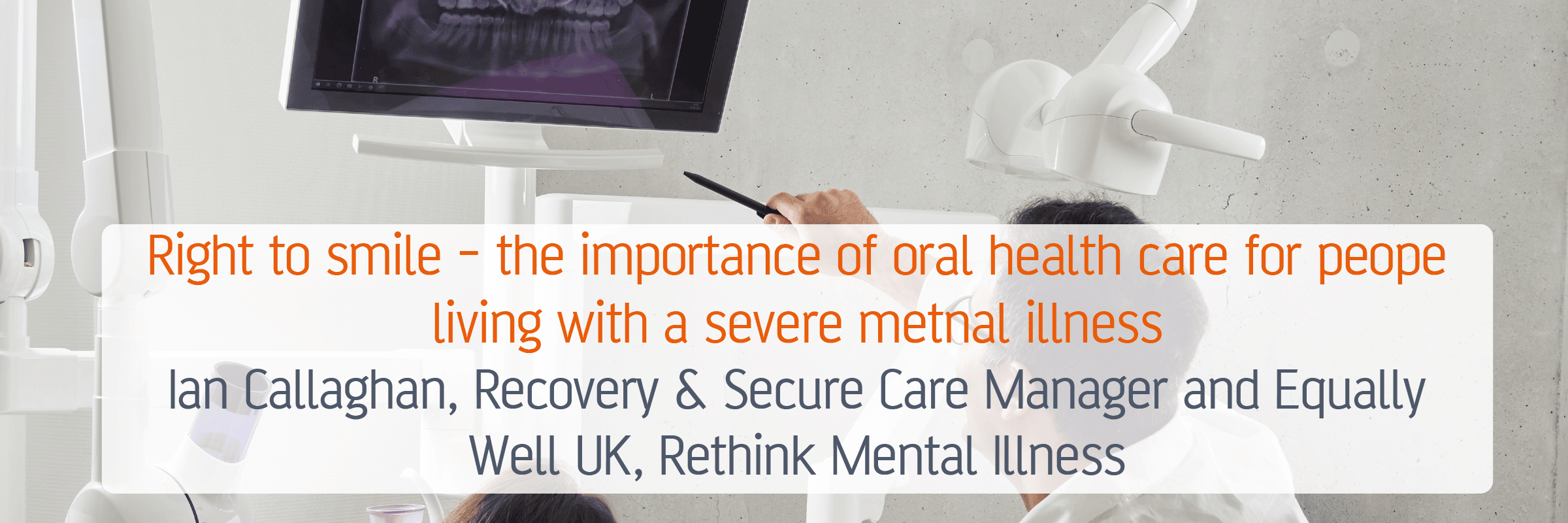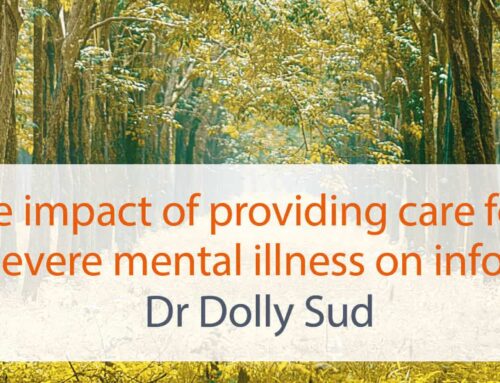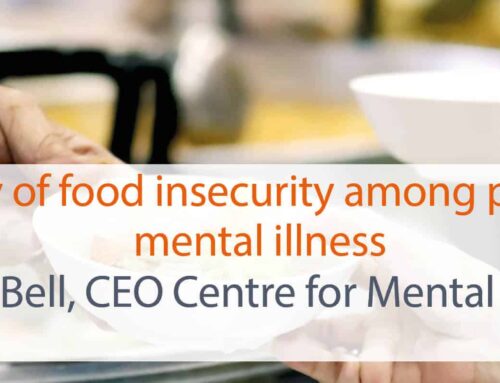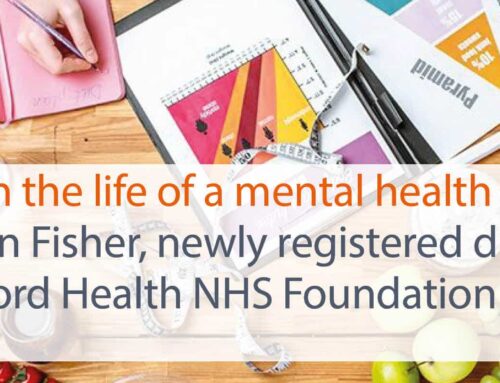
Equally Well UK has been passionate about improving oral health care for people with a diagnosis of severe mental illness for some time now, having worked with partners and also holding a members’ webinar last year. We were very pleased to hear about the Right to Smile consensus statement early on and delighted to be involved in supporting it.
A colleague and I from Rethink Mental Illness attended the ‘Right to Smile’ event at Manchester Metropolitan University on Friday 30th September. What, you may ask, is the ‘Right to Smile’? Well, we can take you straight to the consensus statement to tell you more.
The Right to Smile consensus statement brings together different organisations who care deeply about the inequality that people living with severe mental illness face, in relation to oral health.
“The Right to Smile consensus believes that tackling this inequality is overdue and deserves urgent attention from services, researchers, and policymakers.”
They believe that “poor oral health should not be an inevitable consequence of experiencing severe mental ill health”.
And we couldn’t agree more. The consensus statement calls on all relevant people, including ourselves and our members, to do more to ensure that people with severe mental illness aren’t at a disadvantage when it comes to their dental healthcare.
At the start of the event, we heard from Gordon Johnston, who has his own lived experience of severe mental illness and hadn’t visited the dentist in almost 30 years. At which point he became an advocate for oral health for people living with severe mental illness, because he realised just how connected his oral health was to his mental health – making him feel more empowered, more confident, and determined not to lose the gains he’d made which have helped him maintain his oral health.
We also heard from other fantastic speakers, including David Shiers, who has long been at the forefront of tackling a range of health inequalities and lobbying for positive change for people with severe mental illness, and who has his own lived experience as a carer of someone affected by a psychosis-related condition.
We also heard from Masuma Mishu, who talked about her systematic review looking at 12 studies on oral health for people with a diagnosis of severe mental illness. She discussed how most studies looked at ‘individual-level’ behaviour, meaning not many looked at the whole system and how it works to prevent and treat. The recommendations were to ensure:
‘Individual, tailored support, focusing on the challenges someone faces to accessing dental healthcare, and maintaining good oral health. Looking at an individual’s preferences and for service providers to use ‘softer’ communications to encourage people to access oral healthcare. Also, that dental healthcare is provided ‘under the same roof’ as mental healthcare, and that someone doesn’t have to go looking for it’.
We heard from Vishal Aggarwal and Easter Joury, who told us about the two-way relationship between oral health and mental ill health, and how people with severe mental illness are at much higher risk of tooth decay and gum disease. Vishal discussed some of the risk factors, including increased sugar intake and snacking, increased smoking and the side effects of certain medications e.g., antipsychotics leading to ‘dry mouth’ which increases the risk of poor oral health.
We learnt from Emily Peckham about how oral health is an ‘ignored health inequality’ and how people with lived experience were calling for this topic to be prioritised. She talked about how the researchers, policymakers, practitioners and people with lived experience came together to define the consensus statement, and call for realistic, 5-year targets as defined by the Right to Smile consensus statement.
Rebecca Harris, Deputy Chief Dental Officer, talked us through the ‘dental healthcare landscape’ in the UK, and how services are commissioned (paid for and organised) and delivered. It was certainly quite complex but gave a really clear indication of the current situation for dental healthcare This was similar to the Equally Well UK members’ webinar on oral health, however Rebecca also noted how the COVID-19 pandemic impacted dentists’ ability to provide timely treatment. The biggest takeaway was that, with the new way of working in the NHS across integrated care systems (ICSs), there is a real opportunity for close working between mental healthcare and oral healthcare services.
A really exciting study funded by the National Institute for Health and Care Research (NIHR), led by Jasper Palmier-Claus, taught us about why ‘The Mouth Matters in Mental Health’ and how link workers who are dedicated to supporting people to access appropriate oral healthcare may just be the answer. Watch this space…
Some vital points made by the speakers included that:
- Dental diseases are preventable! A focus on early intervention and ensuring oral health checks are part of physical health checks for people with a diagnosis of severe mental illness could go a long way to improving poor outcomes.
- In usual circumstances, if someone misses a dental appointment, they’re ‘taken off the list’ and have to re-register. There seems to be no reasonable adjustments for someone living with a diagnosis of severe mental illness. This has to change.
- There is a ‘tyranny of low expectations’ and you ‘don’t know what you don’t know’ when dealing with dental healthcare for people with a diagnosis of severe mental illness. If you’re not sure what your rights are to accessing timely, effective, and cost-appropriate treatment, you’re even more at risk of not getting treatment at all.
- In terms of support ‘in services’, it’s about a culture of good health – supporting people and their families and carers to make healthier choices, but by ensuring that the system makes the healthier choice the easier choice.
- There is still fear of stigma and discrimination for people living with a diagnosis of severe mental illness about declaring their mental illness and medication records when registering with a dentist. Dentists should be transparent about why they’re asking for medical histories, as it can help with treatment options e.g., if someone discusses the antipsychotic medication they’re taking, the dentist can provide guidance on treatment for dry mouth.
One of the participants at the event said, “If I’d have had more regular check-ups earlier on, I’m sure the overall expense to the system and myself would have been significantly less.”
To which one of the speakers, David Shiers, shared a really poignant and encapsulating message, rounding off the event, which should hopefully speak to commissioners, our members, people with lived experience, and policymakers alike…
“If you think good care is expensive, wait until you hear about how expensive bad care is…”






